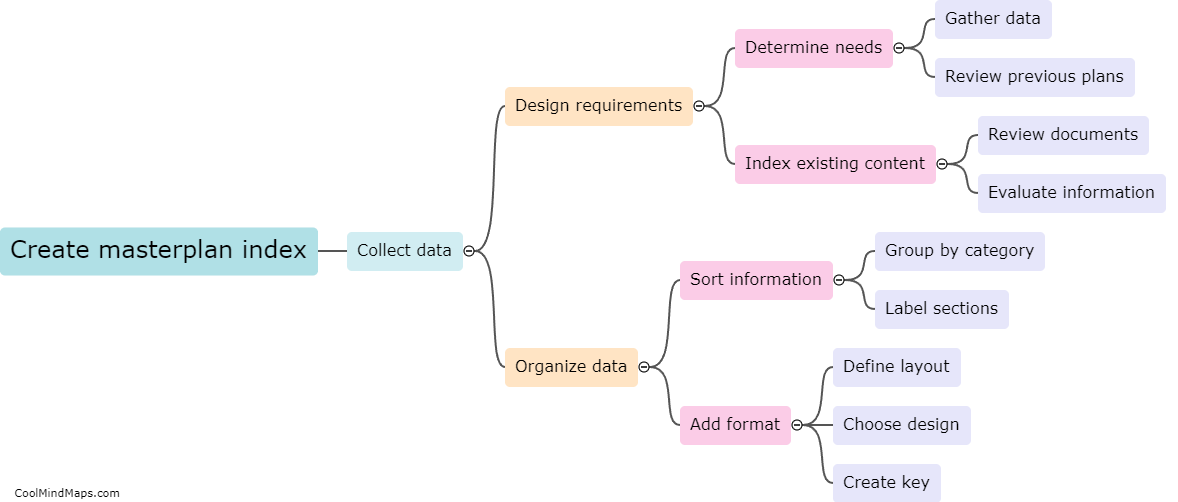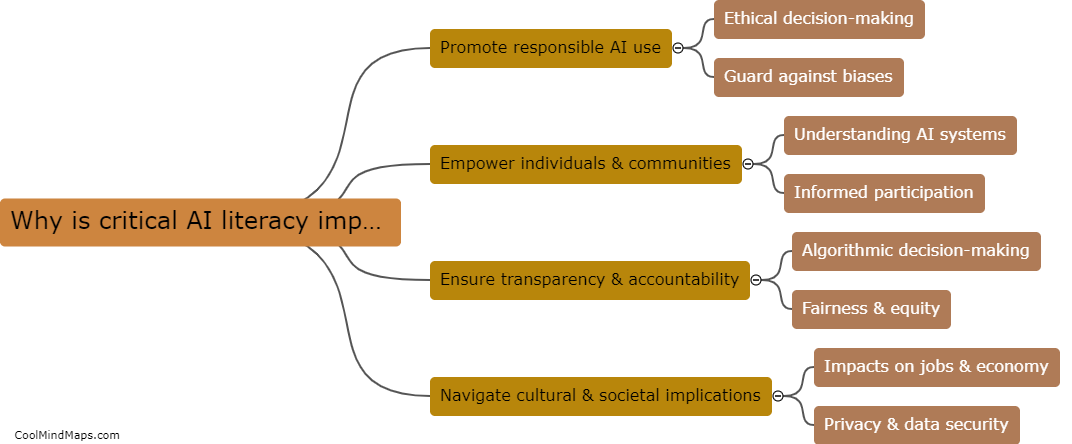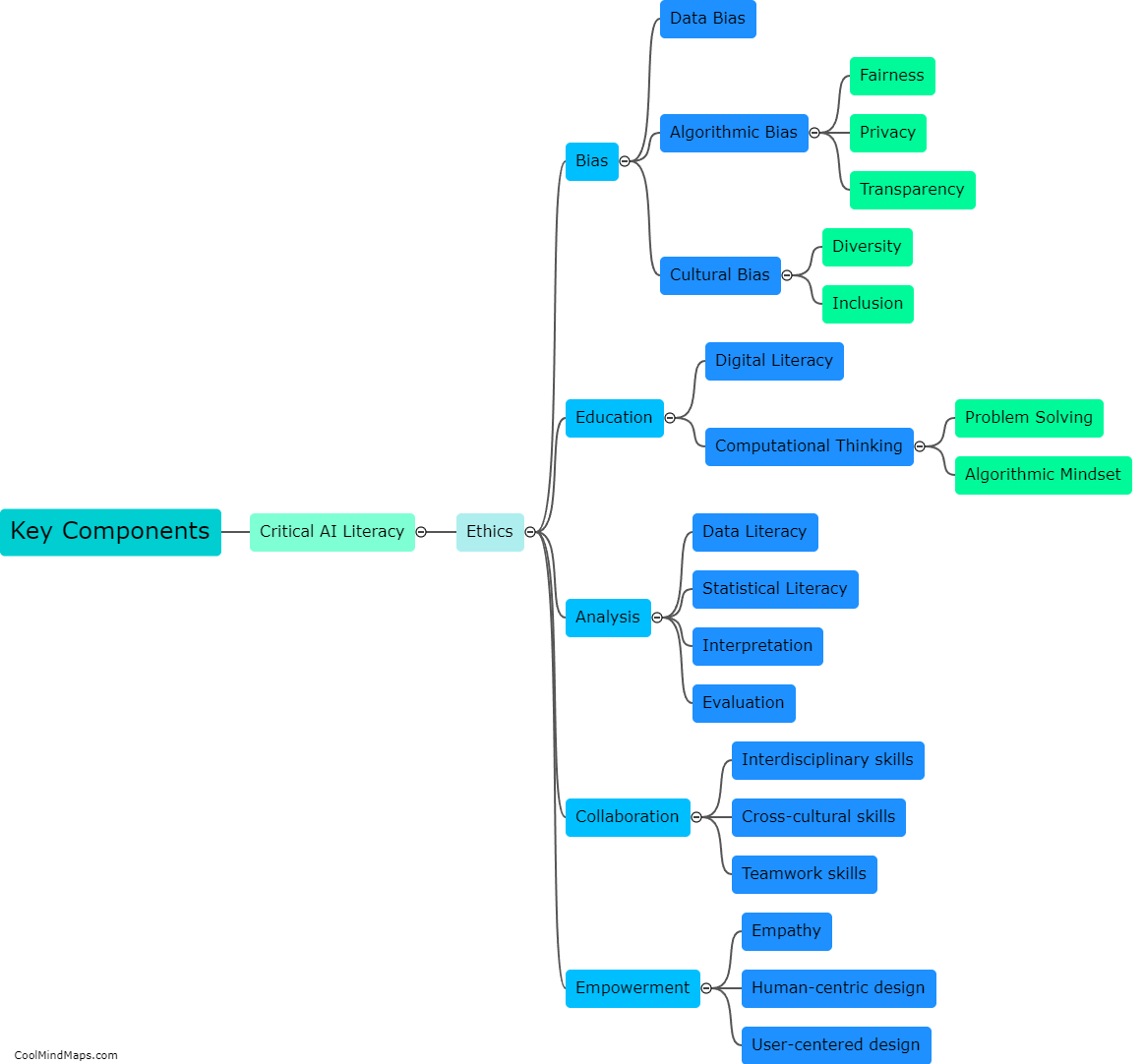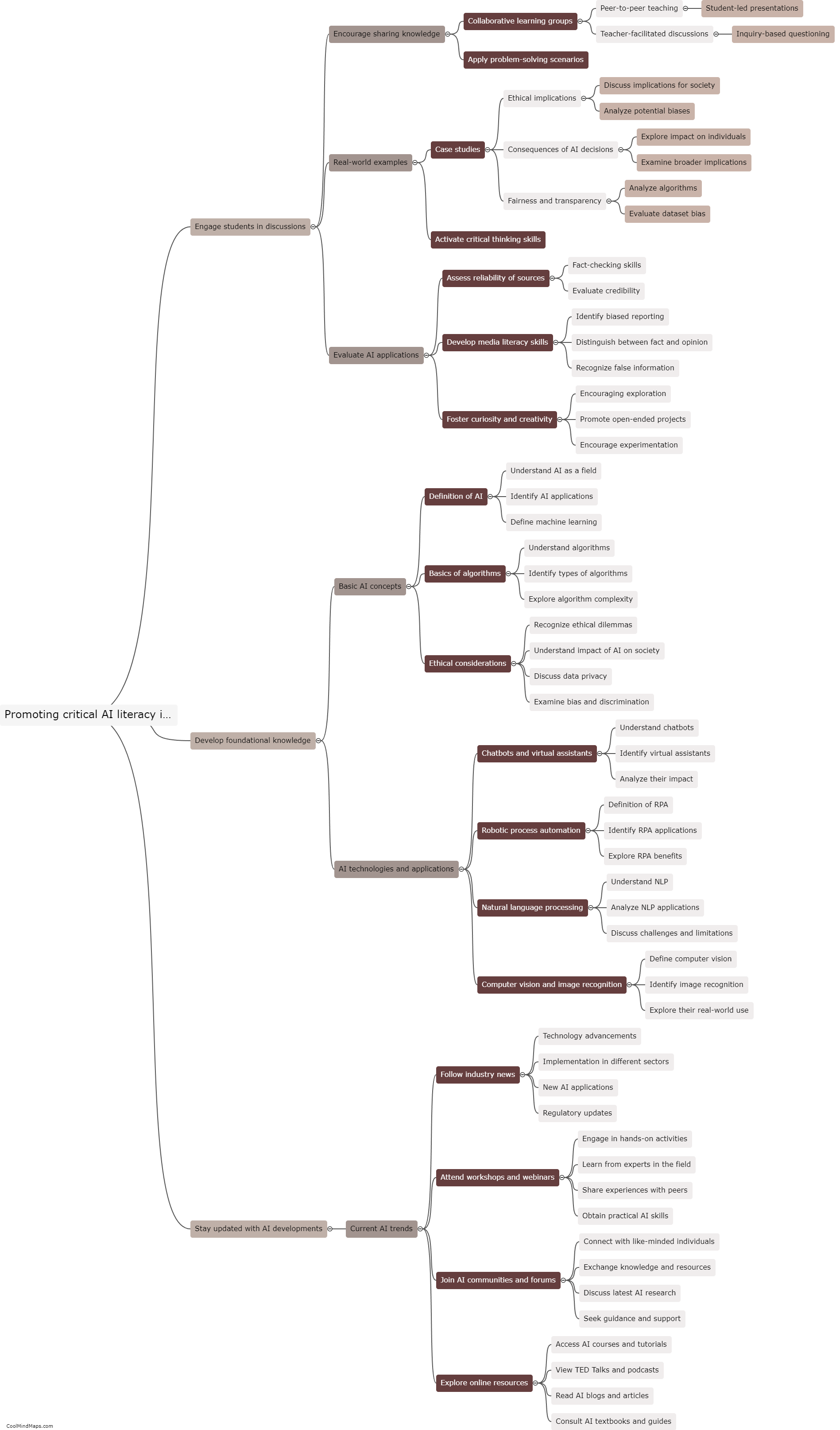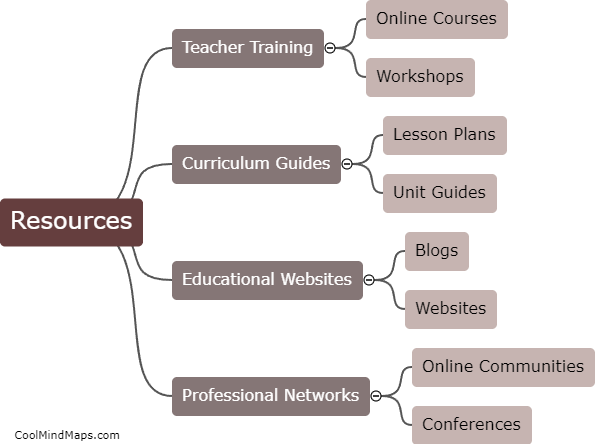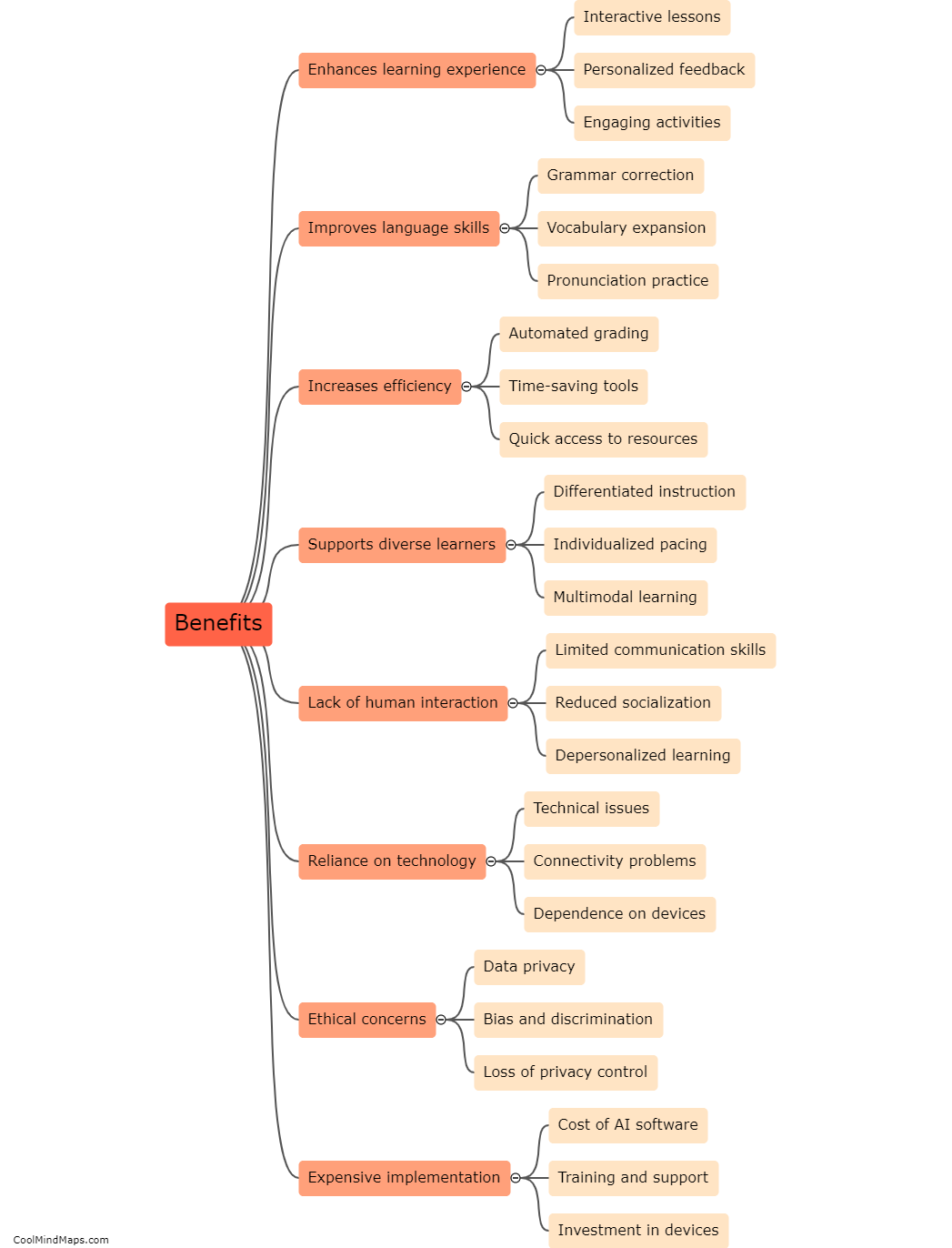How can teachers assess students' critical AI literacy skills?
Teachers can assess students' critical AI literacy skills through a variety of methods. Firstly, teachers can design assignments or projects that require students to analyze and evaluate different AI technologies and their social implications. This can be done through group discussions, presentations, or written reflections that require students to critically assess the ethical, legal, and societal implications of AI. Additionally, teachers can assess students' critical AI literacy skills by incorporating real-world AI examples into their curriculum and asking students to identify and argue for or against the ethical use of AI in those contexts. Finally, teachers can assess students' critical AI literacy skills through formative assessments such as quizzes or class discussions that test their understanding of key concepts and their ability to apply critical thinking skills to AI-related scenarios. By using a mix of assessment methods, teachers can effectively gauge students' critical AI literacy skills and provide targeted feedback for improvement.
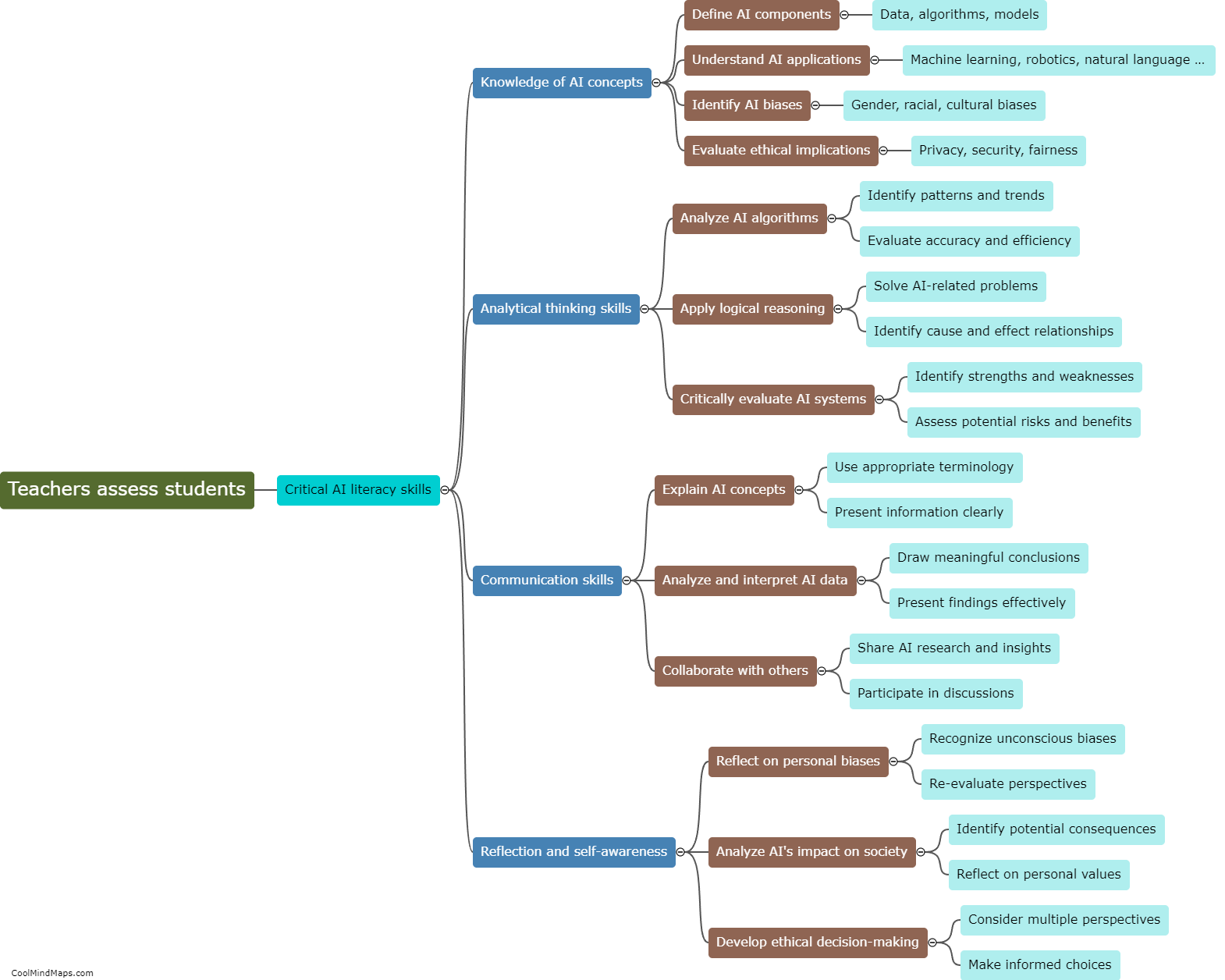
This mind map was published on 27 October 2023 and has been viewed 104 times.



